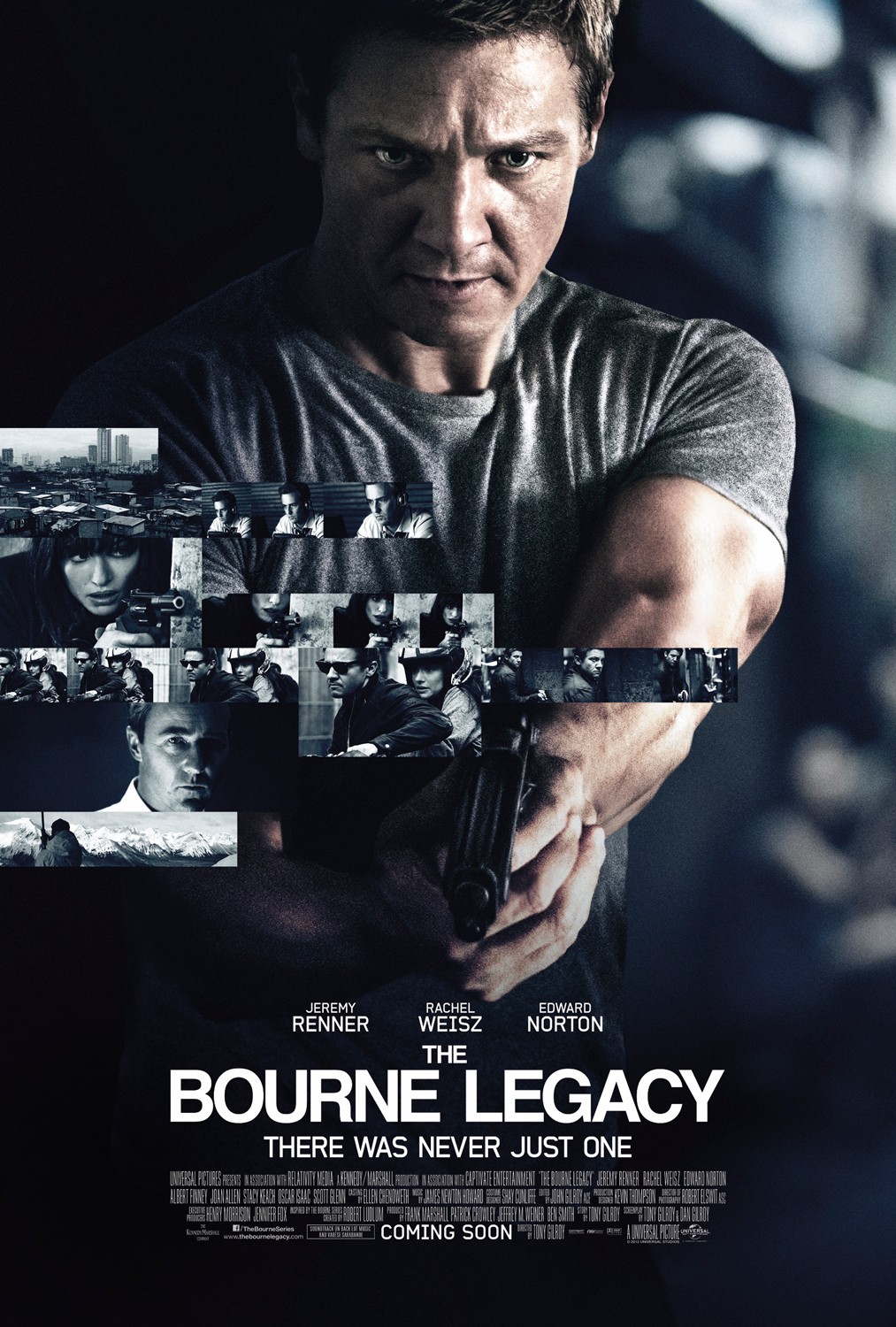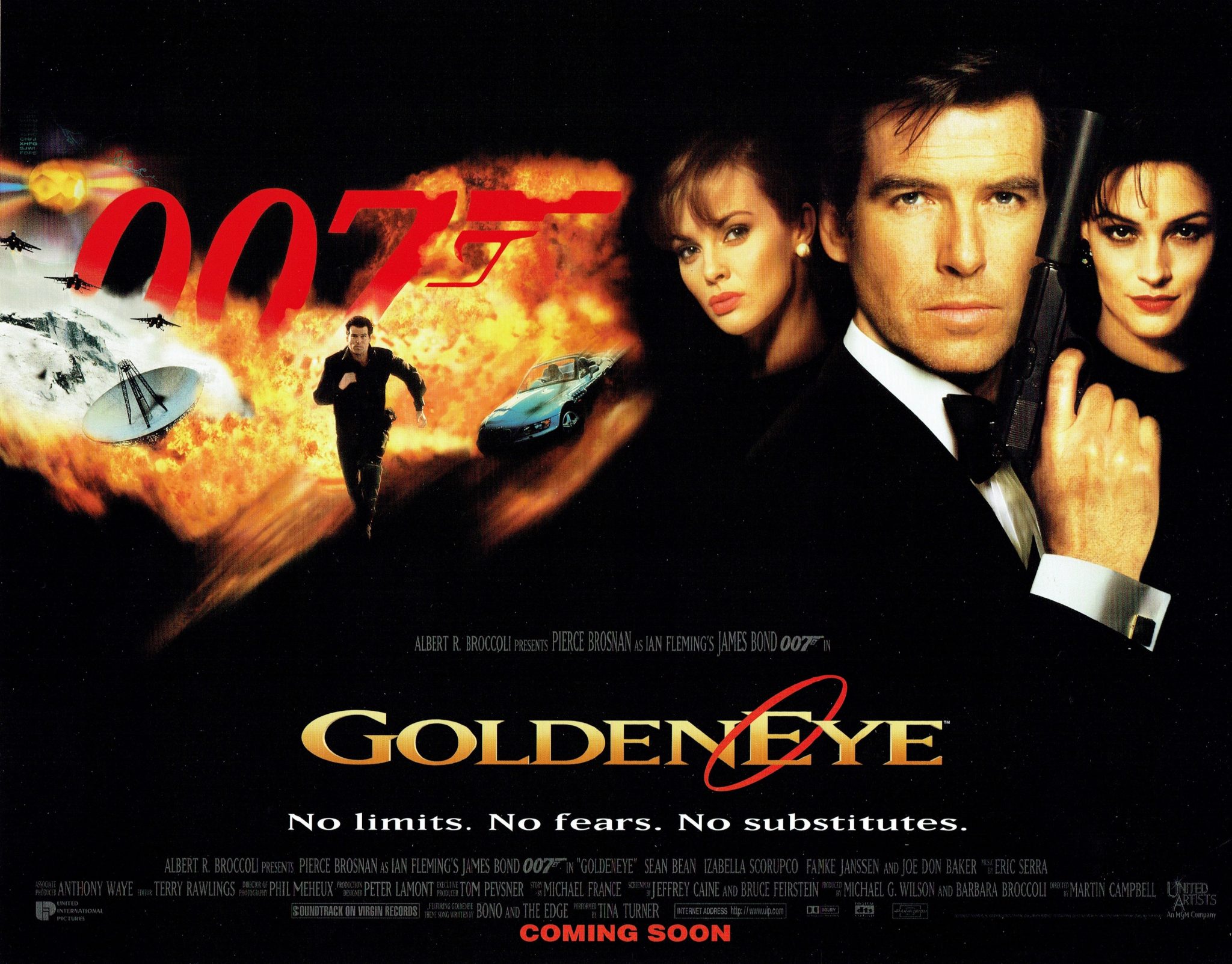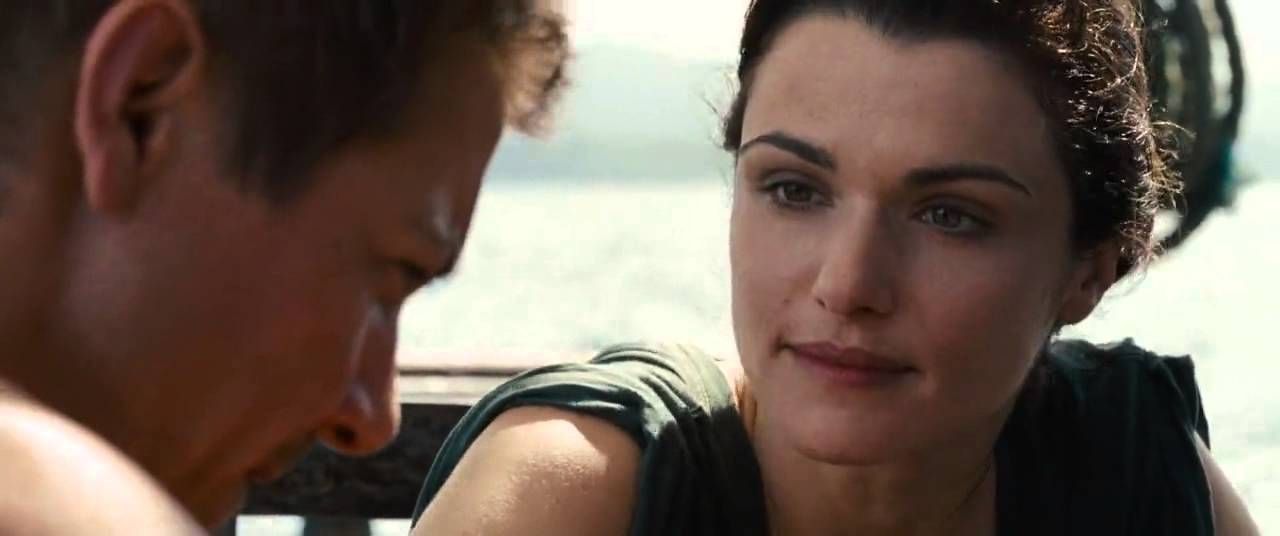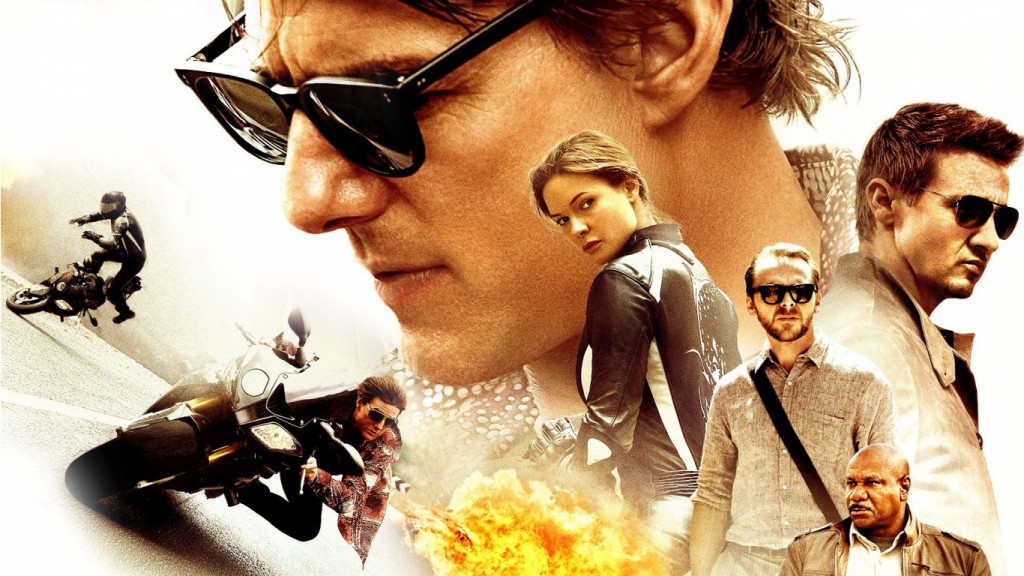
The pandemic has forced me to evolve new methods of escapism. As any of my Instagram followers know, I am a glutton for action and thriller movies. And the “spy action-thriller” is one of my favorite sub-genres because they get to play with a very specific and unique set of rules. Last night, THE BOURNE LEGACY (2012) was on the docket. Spoilers for the decade-old blockbuster ahead…
It is hard to remember, but 2012 was pre-Snowden, post-crash, pre-Trump, post-Deepwater Horizon, pre-Benghazi. What’s interesting about this is, even in 2012 (before the Snowden revelations), spy movies were offering a new type of narrative to meet the libidinal desires spurred on by the ultimate post-9/11 antagonist: surveillance.

In popular media, British spies fulfill the repressed desires of global dominion while American spies fulfill the repressed desires of transcending “the system.” It is, “the sun never sets on the British Empire,” versus, “We’re trapped in the belly of this horrible machine, and the machine is bleeding to death.”
While probably objectively worse than THE BOURNE IDENTITY (2002), THE BOURNE LEGACY is still a serviceable romp. The film is cleanly divided into three acts (I could physically feel each act starting) but suffers from the burden of its own canon. The introduction of Louis Ozawa Changchien’s super-solider antagonist in act three was, frankly, lazy. Until then, our protagonist, played by Jeremy Renner, never faces any adversary more challenging than a security guard or generic federal agent… Yes, taking out a drone in act one with a rifle was impressive but did we ever doubt him in the first 30 minutes?
The dialog is… awful. Edward Norton manages to deliver his exposition with stately gravitas and nuance, but the rest of the cast falls flat. And as much as I love stories where the action unfolds both in the field as well as in stuffy government buildings with suits yelling at each other, there is a terminal disconnect as to what is actually at stake here. The events of original trilogy have compromised various government programs and lots of important looking people are clearly upset about this but why should we, the audience, care? Norton plays it like we should be rooting for him, but he’s just another G-Man. Then again, maybe that is exactly the point.
Rachel Weisz conveys a measure of grace and authenticity while Oscarr Isaac is erudite as ever. (Isaac should’ve come back in act three as the antagonist.)

Nevertheless, THE BOURNE LEGACY offers plenty of kicks from an intoxicating doctor/patient romance to rugged survivalist milieu in an arctic wilderness. And I will never ever get sick of successfully picking up the cache of cash, weapons, and papers in from a car in the long-term parking garage at the airport! Evergreen!
(NB: has anyone ever written about the appearance of snowy worlds in sequels? Empire Strikes Back, Die Hard 2, Batman Returns, Dark Souls 2, Red Alert: Counterstrike… Maybe it is apophenia on my part but I feel like frozen worlds always appear in the second installment. So, if you’re writing a sequel, just add snow! (Yes, this is technically BOURNE #4 but ostensibly was the start of a second trilogy. Leave me alone, this is my blog.))
Unlike BOURNE, entries in the BOND (1962 - 2021) franchise have only the thinnest layer of canonical persistence. This quality has allowed each entry to begin with a perfectly neutral status-quo, thereby liberating writers and producers to do whatever strikes their fancy. MISSION IMPOSSIBLE enjoys a similar framing, with events from preceding installments only loosely impacting today’s crisis.
So, what themes and tropes make these spy movies tick?

First and foremost, spy movies offer us the power-fantasy of operating above, beyond, or outside any laws or jurisdiction. You can go anywhere and kill anyone. Assume a new identity at will. Lie to whomever. It is all permissible. Even killing your boss is on the table in spy movies. (“He was a double-agent! I had to!”) The paranoia of wondering who you can trust is the funnest part of the genre. Anyone could be kompromat. TINKER TAILOR SOLIDER SPY (2011) is perhaps my favorite for this very reason.
Second, spy movies have a unique ability to collapse space. Characters jet-set across the globe following the trail of whatever MacGuffin is driving the plot. MISSION IMPOSSIBLE (1996 - 2024) gleefully uses this move, rapidly advancing storylines forward while simultaneously satisfying the audience’s desire for the exotic. In LEGACY, Norton nonchalantly informs Renner he’s off to Yemen next. To have a job that can spirit you away to any city at any time for any reason! Oh, the adventure!
Third, and this is the thing that interests me the most, is the spies that get out transcend beyond the geofences of the surveillance industrial complex. In THE BOURNE IDENTITY, our protagonists successfully evade all government agencies and exist in an idyllic coastal town under assumed aliases. In LEGACY, our heroes literally sail into the sunset while enjoying the same liberation. Not only have they transcended the facial-recognition software and call-loggers and field agents and assassins, but they are absolutely free to live whatever lives they want. Their designer backpacks lined with government cash and a dozen different passports.
No other genre offers this vicarious experience. These stories communicate, “the way out is through.” In other words, only spies, secret agents, and super-soldiers have the skills and perspective to escape surveillance industrial capitalism. It is a subtle opiate. Don’t even try. You are not trained. You cannot do it.
And why should you? Do you have something to hide? I certainly don’t. Folks frequently comment on the vulnerability and earnestness of my writings and videos. I understand why it may be jarring. While so many are posturing and performing success, I’m honest about being crushed by student debt and the psychological toll 21st century existence has on empathic and aware humans. Transcending surveillance isn’t at the top of my todo list, though I did just install a “pi-hole” last week. I won’t give up, though. That is the mission of artists: to not give up.
To not give up and to help others not give up.
